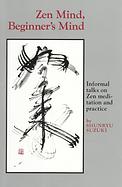~ Shunryu Suzuki Roshi
The Ino's Blog: Counting To Nine
Wednesday, May 11, 2011
Counting To Nine
I bought myself another copy of Zen Mind, Beginner's Mind, and I was looking for the explanation of why we do nine prostrations at the beginning of morning service instead of three, which I have heard here many times over the years: Suzuki Roshi thought American students were more stubborn than Japanese and needed more help in letting go of the ego.
In the book we read,
'After zazen we bow to the floor nine times. By bowing, we are giving up ourselves. To give up ourselves means to give up our dualistic ideas. So there is no difference between zazen practice and bowing. Usually to bow means to pay our respects to something which is more worthy of respect than ourselves. But when you bow to Buddha you should have no idea of Buddha, you just become one with Buddha, you are already Buddha yourself.'
- These last two sentences are ones I should probably memorise, as I often find myself answering a question around this from new students or visiting high school kids - if there is no god in Buddhism, why are you bowing, who are you bowing to?" ~ more

Suzuki Roshi dot org (suzukiroshi.org)
• Suzuki Roshi Dharma TalksShunryu Suzuki Roshi on YouTube
The purpose of San Francisco Zen Center is to make accessible and embody the wisdom and compassion of the Buddha as expressed in the Soto Zen tradition established by Dogen Zenji in 13th-century Japan and conveyed to us by Suzuki Roshi and other Buddhist teachers. Our practice flows from the insight that all beings are Buddha, and that sitting in meditation is itself the realization of Buddha nature, or enlightenment.• Zen Mind, Beginner's Mind
~ by Shunryu Suzuki Roshi• The Ino's Blog
• Shunryu Suzuki-roshi, a Japanese Zen priest belonging to the Soto lineage, came to San Francisco in 1959 at the age of fifty-four. Already a respected Zen master in Japan, he was impressed by the seriousness and quality of "beginner's mind" among Americans he met who were interested in Zen and decided to settle here. As more and more people of non-Japanese background joined him in meditation, Zen Center came into being and he was its first abbot. Under his tutelage, Zen Center grew into City Center, Green Gulch Farm and Tassajara Zen Mountain Center. He was undoubtedly one of the most influential Zen teachers of his time.
"In the beginner's mind there are many possibilities, but in the expert's there are few."
So begins this most beloved of all American Zen books. Seldom has such a small handful of words provided a teaching as rich as has this famous opening line of Shunryu Suzuki's classic. In a single stroke, the simple sentence cuts through the pervasive tendency students have of getting so close to Zen as to completely miss what it's all about. An instant teaching on the first page. And that's just the beginning. In the thirty years since its original publication, Zen Mind, Beginner's Mind has become one of the great modern Zen classics, much beloved, much re-read, and much recommended as the best first book to read on Zen. Suzuki Roshi presents the basics—from the details of posture and breathing in zazen to the perception of nonduality—in a way that is not only remarkably clear, but that also resonates with the joy of insight from the first to the last page. It's a book to come back to time and time again as an inspiration to practice.
Purchase Zen Mind, Beginner's Mind from Zen Center's on-line bookstore.SOTOZEN-NET official site (english)
• A Message from the Head Priest
ZEN playlist @ rc's youtube channel
TAG THIS PHOTO
see also:
Master of the Shakuhachi & about Zen & Buddhism
Dharma Wheel & About Dharma












No comments:
Post a Comment